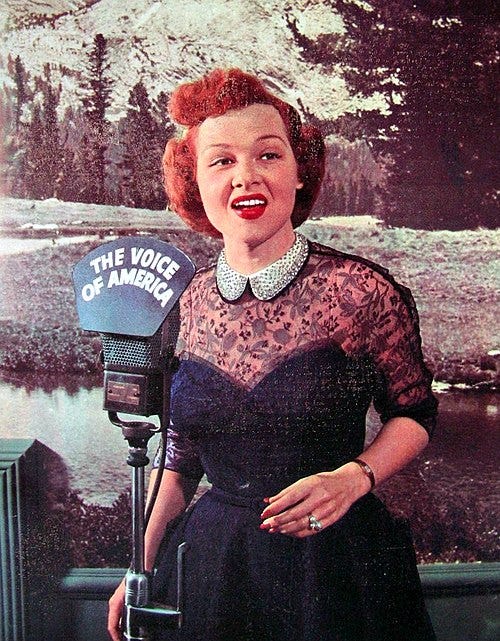Voice of America
The Voice of a Superpower
Voice of America (VOA), one of the United States' most enduring symbols of communication and freedom, has served as a beacon of truth, hope, and connection to millions of people worldwide. Established in the heart of World War II, its mission was clear: to broadcast news and information to those living under oppressive regimes, fighting against the spread of misinformation and censorship. Over the decades, VOA became more than just a news outlet—it became a lifeline, a link to a broader world, and an ally to soldiers, diplomats, and civilians alike.
The Birth of a Beacon
In 1942, at the height of World War II, Voice of America began its first broadcast with the voice of William Harlan Hale. It was born out of necessity—an answer to the Nazi propaganda machine and the dire need for accurate, reliable information during the war. With its first broadcast in German, VOA aimed to reach the hearts and minds of those suffering under totalitarian regimes. The goal was not only to provide the truth but to offer an alternative to the distorted, enemy-controlled narratives that were keeping people in the dark.
A Soldier's Lifeline
As the years went on, VOA’s reach expanded, and its importance to U.S. soldiers stationed overseas became undeniable. In World War II, the Korean War, and the Vietnam War, VOA’s broadcasts served as a source of both morale and information. For soldiers far from home, hearing news from America—whether it was updates on the war, messages of support from their families, or entertainment programming—was a vital connection to the world they were fighting for. VOA’s broadcasts helped them understand the broader context of the conflict, kept them grounded, and reminded them that they were not alone.
Below is a recording from March 25, 1950, wherein Voice of America re-explains its role. Source: National Archives
VOA’s impact on soldiers during these wars cannot be overstated. Amid the isolation and strain of wartime, its broadcasts became a constant reminder of home, offering everything from music to sports updates, alongside its crucial role in informing the public of military developments. More than just a news outlet, it became a source of comfort and solidarity for those stationed in foreign lands.
Standing Against Censorship
As the Cold War set in, VOA became an even more pivotal force on the global stage. Throughout Eastern Europe and the Soviet Union, the United States sought to counter the Communist propaganda that was pervasive across the Iron Curtain. VOA’s broadcasts in Russian, Polish, and other languages targeted populations living under the Soviet regime. In this ideological battle, VOA’s commitment to truth and transparency was a revolutionary act.

During the Cold War, VOA was often a rare source of unfiltered news, challenging the narratives being spun by oppressive governments. Its role in providing news to the people behind the Iron Curtain was vital—not only for soldiers but for civilians who were otherwise isolated from the truth.
In 1984, Ronald Reagan said, “The Voice of America has been a strong voice for the truth. Despite problems of antiquated equipment and Soviet jamming, the Voice of America has been able to extend its message of truth around the world…”
It was a fight not with weapons, but with words, and VOA stood firm in its mission to offer hope, knowledge, and a better understanding of the world outside the walls of censorship.
The Digital Age and Evolving Legacy
As the world entered the digital age, VOA adapted to the times. While shortwave radio broadcasts continued to serve those in remote or restrictive regions, the growth of the internet and social media provided new ways for VOA to connect with audiences around the world. Its website and digital platforms expanded, offering on-demand news, analysis, and stories in multiple languages. It became an essential tool in the fight for press freedom, particularly in countries where media outlets were tightly controlled.
The Signal Fades
In 2025, after more than eight decades of steady transmission, the airwaves of Voice of America went silent. The end came not with ceremony, but with a quiet cutoff—an executive order that shuttered the U.S. Agency for Global Media and, with it, one of the longest-running voices in international broadcasting.
For generations, VOA stood as a companion to soldiers, a comfort to prisoners of war, and a spark of truth in places where truth was dangerous. From its wartime roots in 1942 to its final broadcasts, it carried news, music, reassurance, and the steady reminder that someone, somewhere, was listening and speaking back.
Though the radio transmissions have stopped, the website remains online—for now—archiving decades of stories, features, and the echoes of what once was. An ongoing legal battle has left a flicker of uncertainty about what the future holds, but the microphones have fallen quiet.
